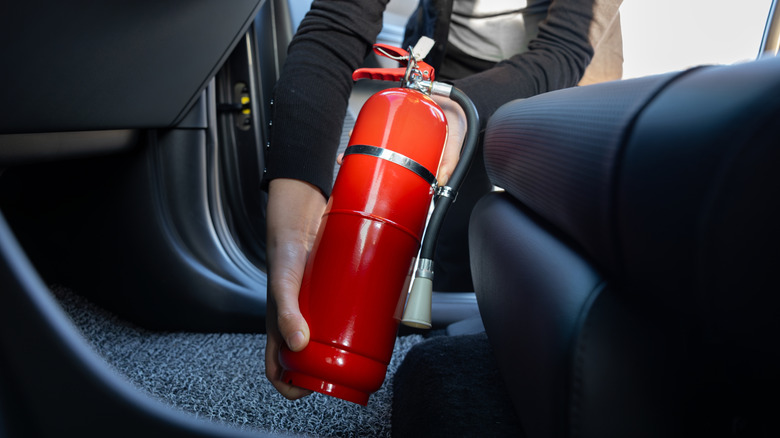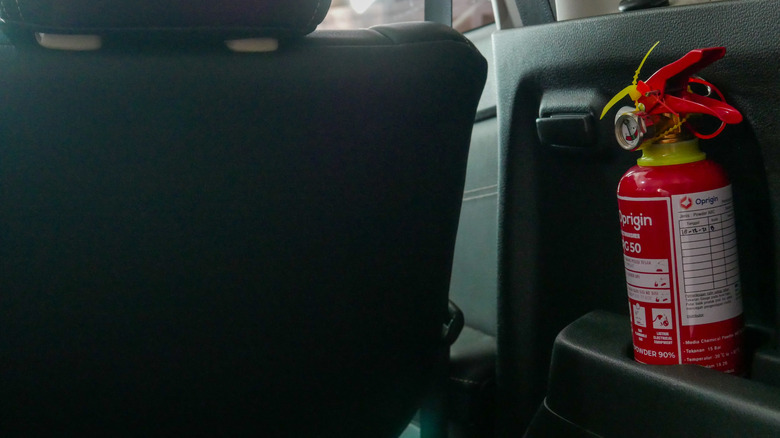Fire Extinguisher For Cars: Do You Need One, And Which Type Is Best?
We may receive a commission on purchases made from links.
Fire extinguishers are not mandatory for private vehicles in the U.S, though car fires are more common than many think. Between 2018 and 2022, U.S. fire departments responded to a yearly average of 215,096 vehicular fires, according to the National Fire Protection Association – 16% of the 1.4 million total fires reported during those years.
Car fires commonly occur on the highway and most start in the engine bay, the wheels, or the running gear — that is, parts such as the suspension and brakes. Fires that start around the fuel tank or fuel line are, surprisingly, less common. Car fires are typically caused by mechanical and electrical issues, as well as crashes. Electric cars' lithium batteries are also at risk of catching fire, and in gas-powered cars, engine oil can catch fire if there's a leak or spill.
In any case, having a fire extinguisher on hand can help prevent a small vehicular fire from escalating into a dangerous, costly mess. That's why motor sports organizations require race cars to have fire extinguishers, and safety regulations say commercial trucks and buses must carry them. But even for regular drivers, having a fire extinguisher provides a way to handle emergencies. So drivers who frequently travel long distances or through remote areas should consider having a fire extinguisher in their car. Emergency responses in these locations are usually delayed, so car owners should be the first to take action when fires arise.
Which is the best fire extinguisher for a car?
It's important to choose an extinguisher that effectively combats common car-fire hazards. The security and fire safety platform IFSEC Global recommends the multi-purpose ABC extinguisher, which protects against fires involving flammable liquids, electrical components, and combustible materials like upholstery and plastic. However, Class B and Class C extinguishers are also good choices. The former is effective against flammable liquids such as gasoline or oil, while the latter counters electrical fires.
You should also consider the extinguisher's size and weight. A compact 2.5-pound extinguisher like the H3R ABC Fire Extinguisher works well for passenger vehicles – small enough to store conveniently while still providing adequate firefighting capacity. Larger extinguishers may be more effective but can be cumbersome and challenging to mount securely and use.
Most ABC and Class B and C extinguishers use dry chemicals, such as monoammonium phosphate. Though highly effective in containing fires, there's also a downside: they can leave a residue that may damage sensitive engine components. Halotron or carbon-dioxide extinguishers don't leave residue, but they tend to be more expensive — as much as $500.
Some ABC- and BC-classified extinguishers contain halotron, while carbon-dioxide extinguishers are only for Class B and C fires. Therefore, a halotron ABC extinguisher is the best choice if budget is not an issue. And make sure you have the other emergency tools you should always keep in the car, such as a jump starter and a Fix-a-Flat.

